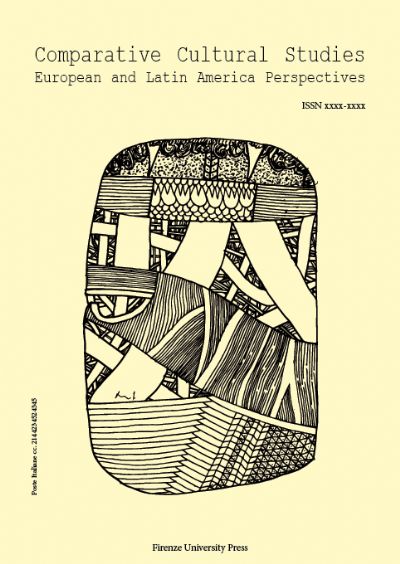Monothematic issue:
THE ROLE OF RELIGIONS AND RELIGIOSITIES AGAINST THE NEW CHALLENGES OF GLOBAL RISK SOCIETIES: THE CASE OF COVID19
n.12/2021
Coordinated by:
Francesco Gervasi (Facultad de Ciencias de la Comunicación, Universidad Autónoma de Coahuila, México)
Simona Scotti (Editor-in-chief of the Journal Religioni e Società and expert in Sociology of religions at the University of Florence)
DOWNLOAD FULL CALL FOR PAPERS (ITA -ENG – SPA)
Similar to the previous one is the idea of Parsons, who maintained that religion, in contemporary societies, has the role of keeping the social system in balance, especially on those occasions in which dramatic events such as death, illness and Injustices in general put this balance at risk. In other words, according to Parsons, religion offers an explanation of these events, thus making them understandable and acceptable. Focusing attention on popular religiosity, de Martino maintained that magical-religious rituals served people (mainly the most humble and vulnerable) to overcome the critical moments of existence by updating (through rituals) those practices that, in the meta-history (in a mythical age), allowed to overcome the same critical moment that, at the present moment, they have to face.
In light of the above, some of the thematic axes of this single issue are:
- What are the responses taken by institutional, individual and popular religions to face the problem of covid19?
- How are institutional religions organized and how do the behaviors of believers change in the face of the impossibility (or risk) of attending religious practices in their churches, groups, movements, etc.?
- What meanings do religious institutions and people attribute to covid19?
- How do religious people manage the sense of uncertainty that living with covid19 implies?
- In what way do some religious leaders take advantage of the fear felt by their faithful, believers and devotees, in front of the covid19?
- Using the techniques of discourse analysis and content analysis, what is the public discourse (media and not) used by institutional religious leaders and figures (or not) in the face of this pandemic?
- With respect to lived religion, how are the behaviors (experiences, practices, beliefs) of religious people modified as a result of covid19?
- With regard to popular religiosity, what kind of requests do religious people make to their saints, to “overcome” the problem of covid19 (to manage fear, to accept the death of loved ones, to ward off risk, etc. .)?
- With regard to popular religiosity, what kind of practices (pilgrimages, etc.) do devotees do to “overcome” as a consequence of the covid19?
Research articles, essays and book reviews will be received that focus on these thematic axes or others that are directly related to the general theme on which the journal focuses.
General considerations
We will receive proposals under the following categories:
- Research papers: As the result of an empirical approach, should have the following sections: a) Introduction, with the presentation of the object of investigation and a justification, b) Literature review, c) Method, d) Results, and e) Conclusion.
- Essay: Academic original argumentation around one of the themes considered for this monothematic issue, with these sections: a) Introduction, with the presentation of the main argument, b) Body, with the development of premises that supports the main idea, and c) Conclusion.
- Book review: Brief academic discussion about a recently published work, related to this monothematic issue.
Formal considerations:
- We will receive proposals in English, Spanish and Italian.
- Title (text centered and bold font), Abstract (justified paragraph alignment) and Keywords (justified paragraph alignment) in the original language and in English.
- Body of text should be in justified paragraph alignment.
- Times New Roman font, size 12, double line spacing.
- Citation based on American Psychological Association Style Guide, 6th edition.
- In both papers and essays, total length should be between 35,000 – 40,000 characters (including spaces), counted from the Title, to the end of References. In book reviews, extension should be between 20,000 – 25,000 characters (including spaces).
- If Tables are used, they should be pasted in the body of text as objects (not as images), so they can be edited.
Dates:
- Reception of proposals: until September 29, 2020.
- Process of peer review: From September 30 to December 31, 2020.
- Accepted proposals proofing: From January 1 to February 15, 2021.
- Estimated issue publication date: May 15, 2021.
Sending of proposals:
- Proposals should be sent to Francesco Gervasi (francescogervasi@uadec.edu.mx) and Simona Scotti (simonascotti@inwind.it).
- Proposals should be sent in two different files: anonymous and complete. Anonymous files should not contain author´s name anywhere in the body of text, self-citations should be marked as (AUTHOR CITATION) and such works should not be listed in References; Author and Institution fields should be removed from file´s metadata. Complete files should include full author name, in the next line after the Title, with institution belonging and email, in a footnote. Any institutional mention or credit to any funding from which the work is derived, should be placed at the bottom of the page, from the title.

